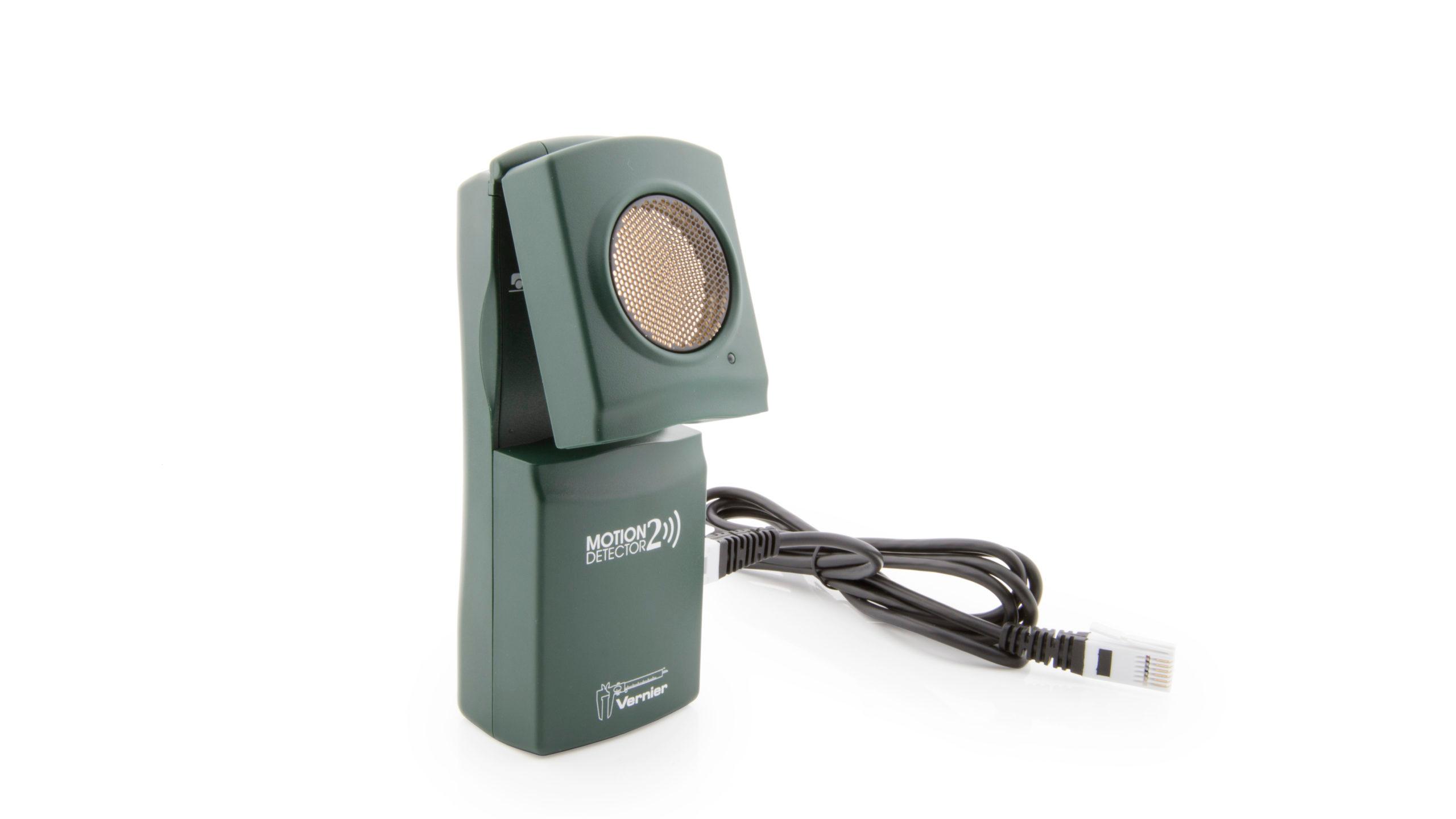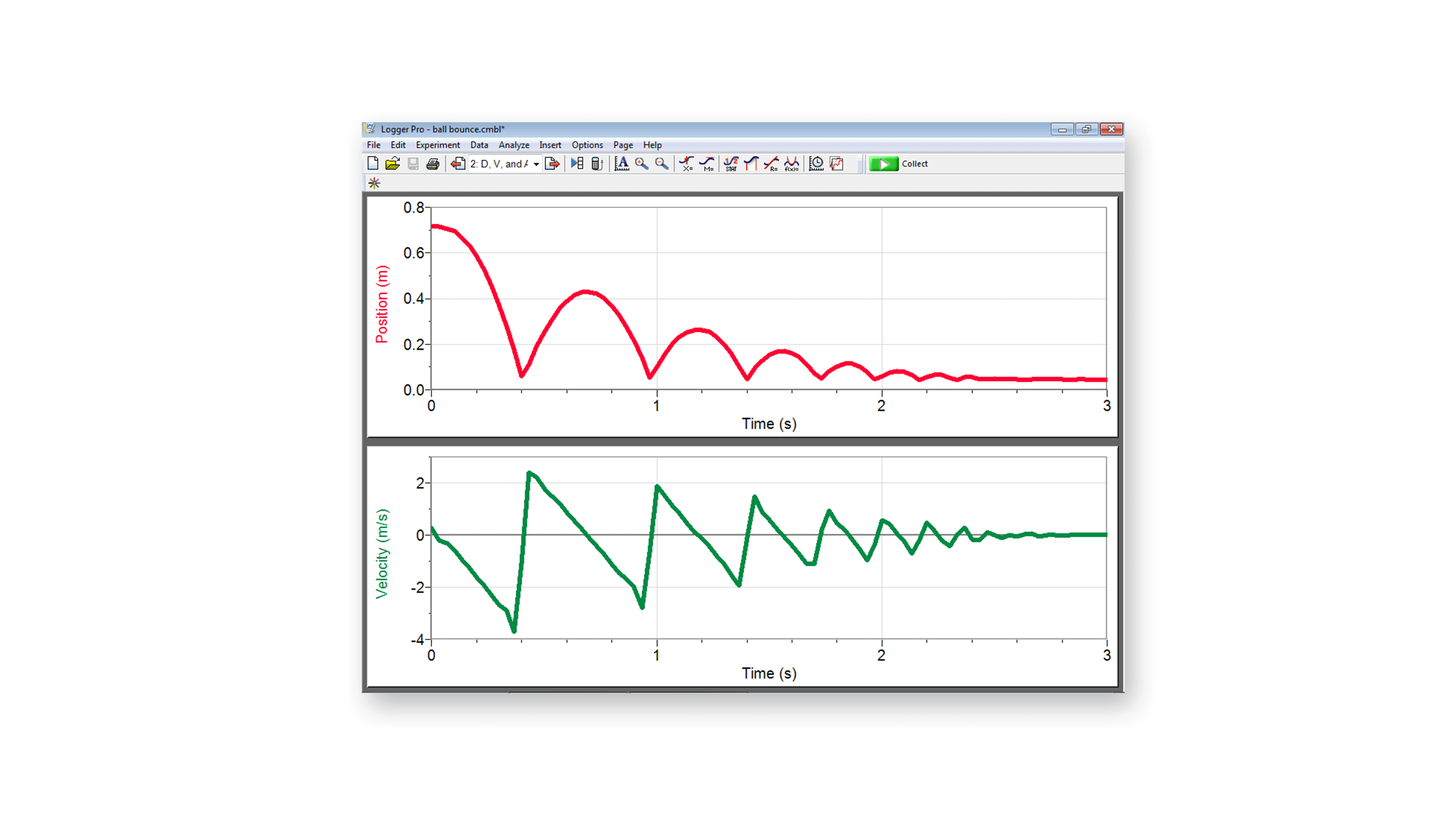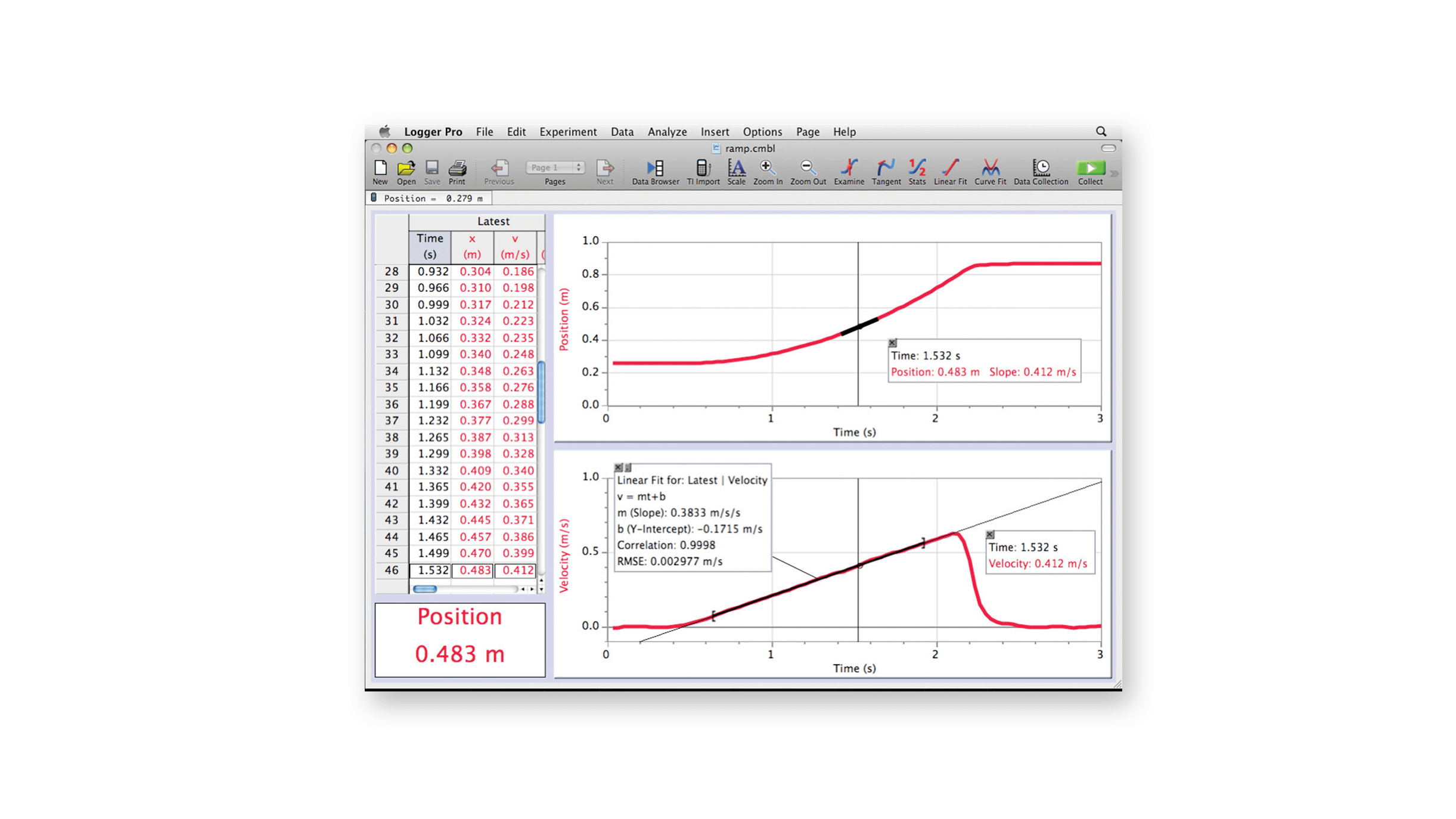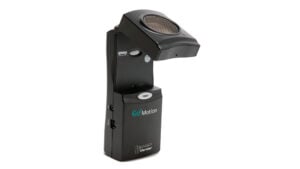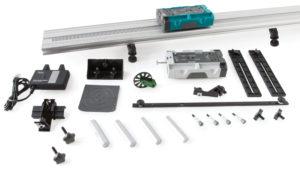The Motion Detector uses ultrasound to measure the position of carts, balls, people, and other objects.
- Measure objects as close as 15 cm and as far away as 6 m.
- Sensitivity switch reduces noise and produces higher quality data for studying dynamics carts on tracks.
- Attaches easily to the Vernier Dynamics System.
- Pivoting head allows for flexibility in the experiment setup.
You may also want to purchase the Motion Detector Clamp to attach the Motion Detector to a variety of objects such as table tops, ring stands, etc.
Motion Detector - Tech Tips with Vernier
Vernier Lab - Falling Objects (Computers)
Additional Videos
Air Resistance (Computer)

